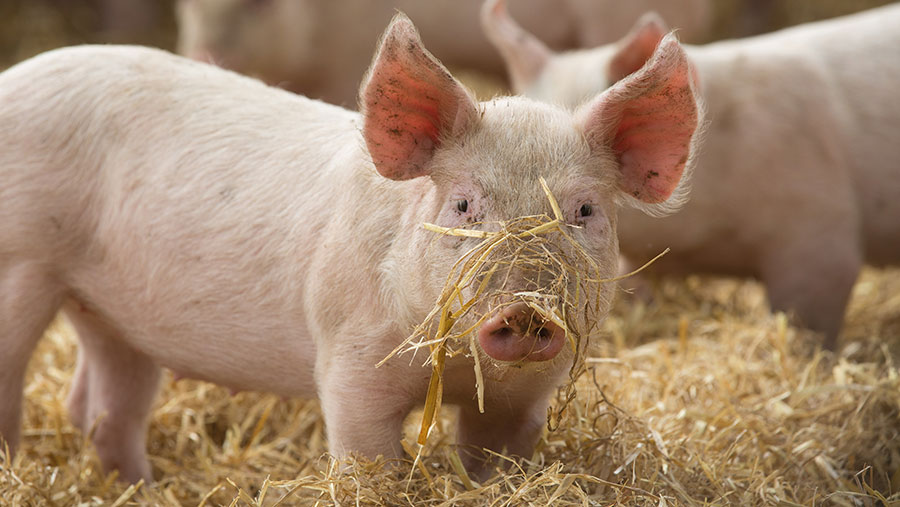Pig producers advised to plan for impending zinc oxide ban
 © Tim Scrivener
© Tim Scrivener Pig producers are being advised to put a plan of action in place now ahead of the formal ban of zinc oxide next year.
Although it is still unclear exactly when zinc oxide will become unavailable commercially, it is expected to be next summer – five years since the EU first announced the supplement was to be phased out.
Zinc oxide has been used in post-weaning pig diets to prevent diarrhoea since the 1990s.
Speaking at a recent seminar, which discussed options to replace zinc oxide, Faye Murch, consultant at Kingsgate Nutrition, warned that successful management of post-weaning diarrhoea (PWD) would be a challenge, and emphasised the importance of collaboration between the vet, nutritionist and producer in tackling this multifactorial problem.
See also: How lower-density starter diets can improve pig performance
“Zinc oxide is something of a wonder drug that can hide a lot of potential issues on farm,” said Mrs Murch.
“We cannot directly replace it, and one of the challenges when it comes to finding an alternative is that we aren’t exactly sure what zinc is achieving within the gut.”
Nutrition
Mrs Murch said good nutrition would be important in helping manage PWD, although it wouldn’t be a silver-bullet cure.
“Some of the strategies we are seeing within nutrition are largely centred on supporting gut health and maximising beneficial bacteria.
These include increasing the fibre content of diets to control the speed [at which] feed is passing through the gut and reducing crude protein levels to maintain gut health. The use of probiotics is also an option that may work in some situations,” she said.
Francesc Molist, research and development manager at Schothorst Feed Research, noted it was also important to avoid overfeeding to maintain a healthy gut microbiome.
He added: “Don’t overfeed creep diets as nutrients not used by the animal will act as a feed source for bacteria, which may predispose stock to disease.”
Vaccination
Eric Nadeau, Elanco global pig vaccine adviser, said vaccination was another key tool, but warned it should be supported by other measures such as good hygiene and biosecurity for optimal results.
Coliprotec F4/F18 is an oral vaccine used for active immunisation of pigs from 18 days of age against enterotoxigenic F4-positive and F18-positive Escherichia coli to reduce the incidence of moderate to severe post-weaning diarrhoea in infected pigs.
Dr Nadeau said farms vaccinating with Coliprotec had seen some very good results in terms of improved performance and reduced antimicrobials use. Research shows vaccination can achieve an extra 2kg of slaughter weight and help pigs reach market weights seven days sooner.
The level of efficacy, however, is very dependent on correct administration. Vet Daniel Parker shared some lessons learned from the poultry industry, where oral vaccines delivered through water lines have become a crucial part of flock health programme.
He highlighted the importance of correct vaccine storage, preparation of the water lines to both eliminate chlorine and remove any biofilm, and adequate vaccination time, which can be monitored by using a dye.
